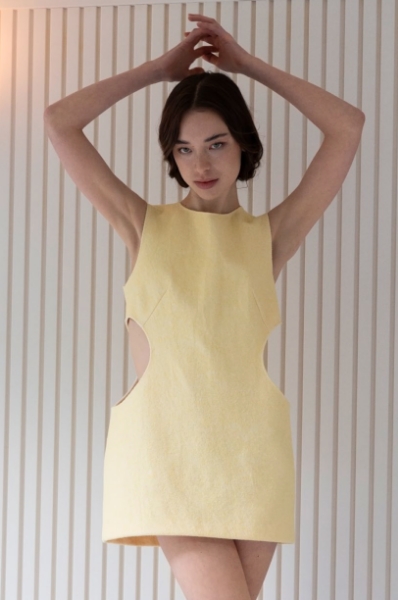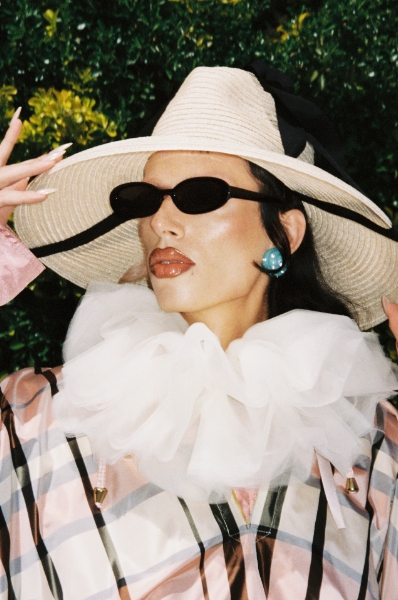Live from the Market – The United States Published on
Special Report – The United States 🇺🇸
Live from the Market
In January 2023, the overall textile exports improved by 4.05%, resulting in $1.895 billion. The apparel sector witnessed a notable surge of 14.97%, generating $575.443 million and forecasting a potential of nearly $400 billion by 2025. Yarn exports rose to 0.53%, amounting to $340.260 million, while fabric exports saw a substantial rise of 4.06%, reaching $683.212 million. Finally, manufacturing revenue expanded to 1.7% this year, while capital expenditures have been steadily growing, with a 0.4% increase in investment in yarn, fabric, apparel, and sewn products.
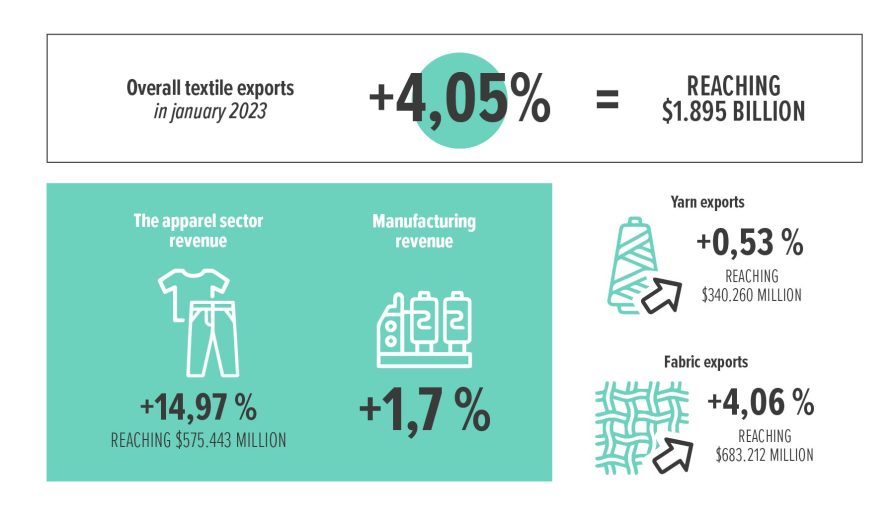
The Department of Commerce recognizes the United States as “a globally competitive manufacturer of raw materials, yarns, fabrics, apparel, and home furnishings.” Its textile industry ranks among the top markets worldwide by export value.
While fabric and garment imports experienced a decrease, their exports increased throughout 2023. They remained at $22-25 billion per annum in the past years, securing the country’s position as the third largest exporter of textile-related products.
Despite the economic challenges following the COVID-19 pandemic, the U.S. textile industry is showing promise and exciting perspectives.
Textile businesses and mills are adopting innovative methods to revitalize their workforce, investing in niche products and markets, embracing cutting-edge technologies, and emphasizing local production.
Textile products manufactured and processed in the United States are in demand and labeled as “Made in the USA” or “American Made.”
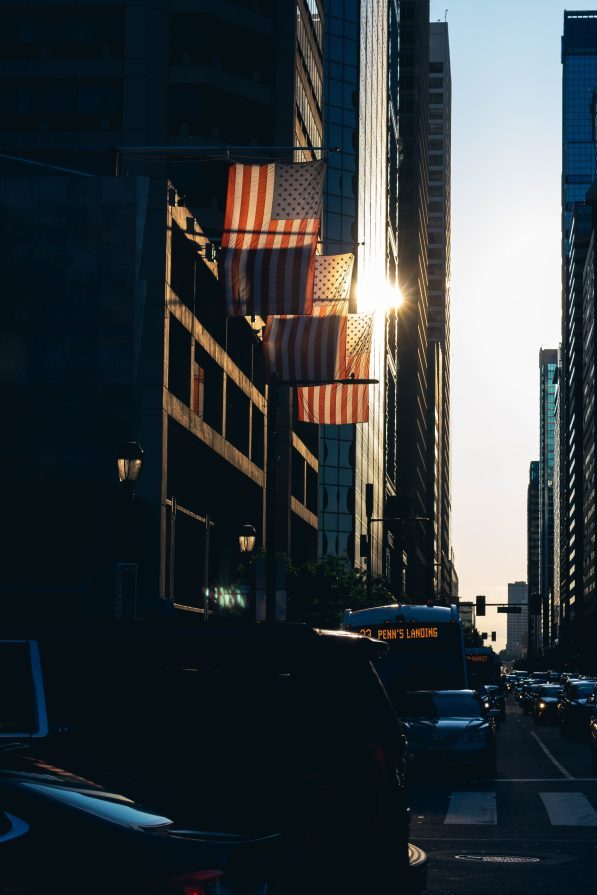
Handcrafted products bearing those labels also align with the U.S. artisan movement, a growing economy featuring the work of local independent makers and personal or small family-owned businesses. Upcycled clothing, handmade, and made-to-order heirloom quality products have become increasingly popular since 2020.
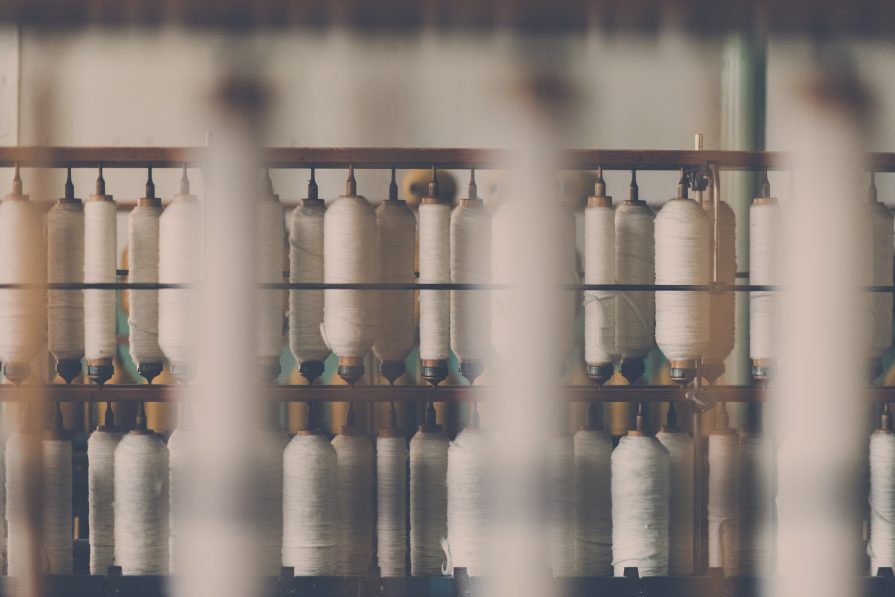
Similarly, textile products labeled “Made in the USA of imported fabric” or “Made in the USA of imported yarn” are also successful. Techwear and healthwear categories have shown particular interest in these sought-after goods, as they represent a primary source of export growth. These versatile products mainly include durable industrial textiles, adaptable specialty materials, breathable and comfortable non-woven goods, and medical fabrics with active ingredients for accelerated healing. Another growing market is UPF sun-protective clothing, which differs from regular apparel due to its high Ultraviolet Protective Factor (UPF).
The UPF measures the garment’s effectiveness in blocking UV rays from penetrating the fabric and depends on factors such as the dyeing process and fabric quality, including elasticity, weave structure, weight, and water retention capacity. Besides high-tech fabrics treated with chemical UV absorbers, other materials with protective properties, such as unbleached cotton, denim, densely woven wool, and lustrous synthetics, also fit the bill.
The rise of techwear, healthwear, activewear, and athleisure markets coincides with the United States technological know-how, which earned the nation second place on The Global Innovation Index in 2023. Simultaneously, as the world goes digital, the influence of social media on consumer behavior leads them to prefer more purposeful fashion-statement products to build their style. The application of various technologies in fashion is further popularized, expanding the boundaries of manufacturing, production, marketing, and wearability. The pioneering U.S. textile companies use fiber science to engineer innovative lab-developed fabrics. Other top-rated U.S. clothing brands focus on developing eco-friendly products to pave the way for cleaner and more conscious practices. Examples include lab-grown leather, bio-based fabrics, vegan goods, moisture-managing materials, brushed double jersey, Tencel, microfiber from reclaimed plastic bottles, recycled wool, and recycled synthetics, specifically polyester and nylon. In addition, sheer materials, linen, fleece, organic cotton, and nettle fiber are witnessing a resurgence. Such items are significant as they reassess the balance between trends, longevity, and ethics. They also re-think textile construction for more ergonomic designs and how technology can be sustainable and serve consumers whose awareness is shifting to more responsible choices.
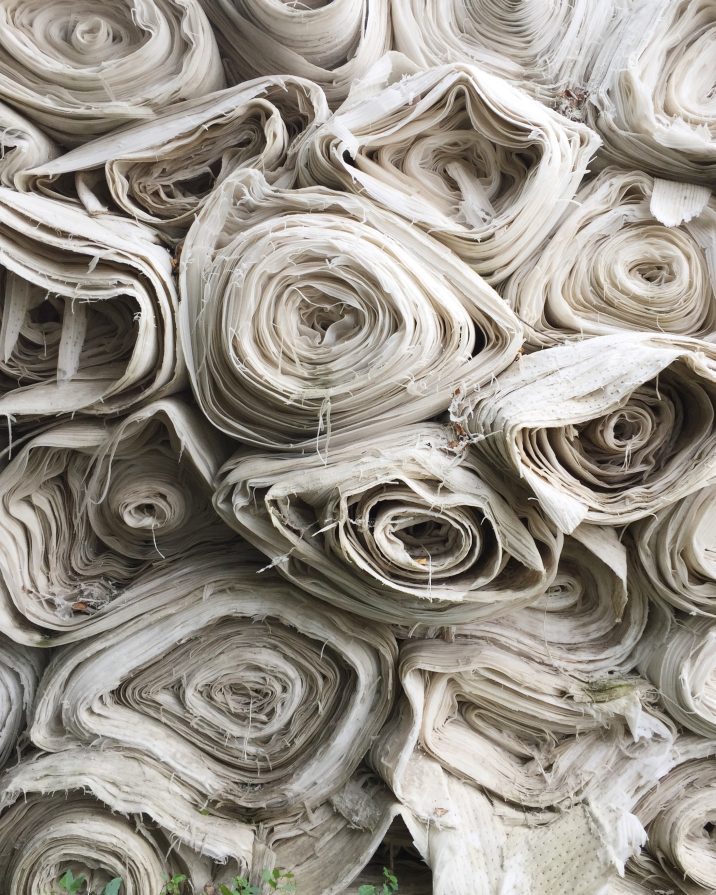
Written by Celine Khawam, Consultant in Fashion and Textile Studies
Ones to watch (very) closely…
Discover our selection of brands making waves on the American market
The eye of Tranoï
Tranoï, the trade show partner specializing in young international designers, shares its pick of emerging U.S.-based brands to follow
Tsyrk
Ready to Wear / Womenswear
Tsyrk is a designer womenswear label, with a focus on sculptural, tailored garments, incorporating feminine silhouettes and whimsical, couture-like detailing.
Tsyrk’s world is one of reverie, translating to nostalgic color pairings, trompe l’oeil features, unexpected details and clever versatility.
Founded in 2021 by Kori Chiang, Tsyrk is the of physical realization of and homage to the designer’s mixed Asian-American heritage.
Chiang believes in an intellectual approach to design and putting a cerebral, modern lens on class silhouettes.
Chiang is captivated by the whimsical aesthetics we find in our environs – since the concept of Tsyrk first formed in her mind, she has remained focused on surprising design details that emerge from a juxtaposition of tangible, “everyday objet” references and an opposing concept of rigidity and uniformity. The result is Tsyrk’s ironically playful mood. The phonetics of ‘Tsyrk’ translate to ‘circus’ in various languages – a word that evokes the dream-like fantasy of the label’s design ethos.
Bagtazo
Accessories / Hats
Bagtazo’s collections are limited. When not made entirely by hand in New York, they are made with ateliers and factories around the United States. Every single piece gets hand-finished in Bagtazo’s studio.
“My designs are a reaction to my surroundings and the desire to change the world around me. I have been making jewellery and taking photographs since I was a child. I grew up in a small beach town in southern California. My mother is from the Philippines and my father is irish-american from Georgia. I also had a long term babysitter from El Salvador who taught me Spanish. This hyphenated identity shaped me into the person I am today. At age 17 I worked at a surf shop, Kanvas by Katin, where the owner cut and sewed bespoke surf boots. I helped organize patterns and learned to hand-cut fabric.
After Katin, I continued my work in fashion, eventually moving to Los Angeles, where I learned product development and production for the apparel industry. In Los Angeles, I studied philosophy and visual anthropology at the University of Southern California, earning two bachelors degrees. Throughout my studies, I continued to work behind the scenes in product development and production for various brands; my career now spanning over two decades in the industry. I currently live in NYC. My friends and family call me coco, and so can you.
A manufacturing promise
“Anything made outside my studio is produced with people that I consider essential to Bagtazo. I am proud to say that I manufacture in the US and that I work with a network of small businesses to make this happen. I feel strongly about working with manufacturers in the US because I believe that workers are the glue that holds our society and economy together. I have also been an environmentalist since I was a child. For this reason, I work with materials of verifiable sources, and continually strive towards building the most sustainable business I can. While Bagtazo may change over the years, these are my core values. For lack of better words, this is my promise to myself, my working partners and all Bagtazo customers forever and ever.” -coco

